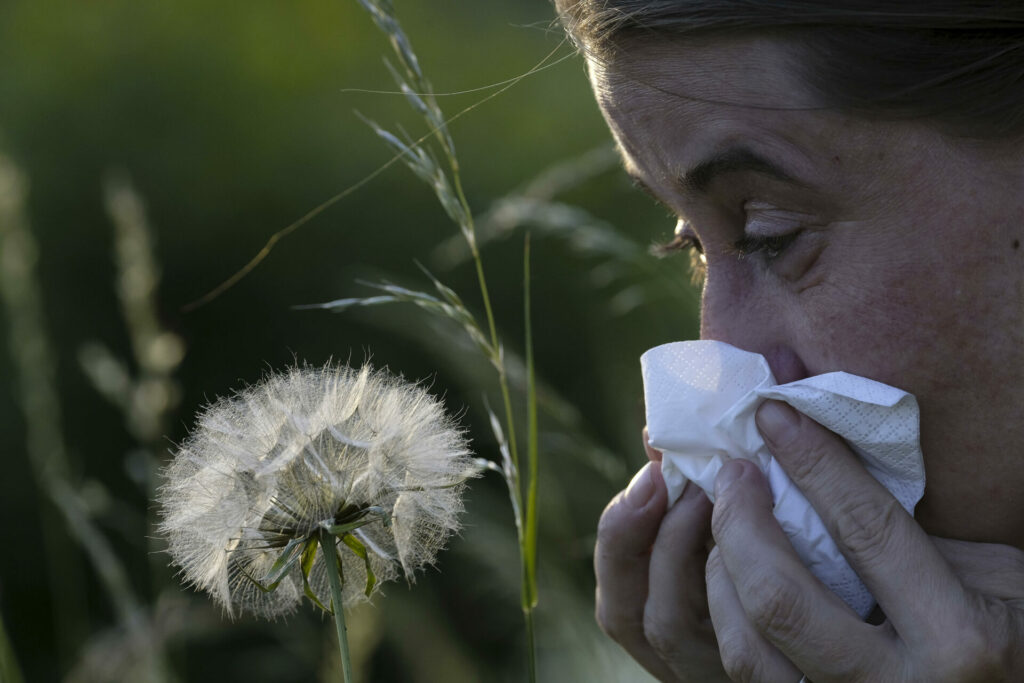It is estimated that currently one in three adults has an allergy in Belgium and elsewhere. And this proportion will not decrease in the future, according to the World Health Organization (WHO) which estimates that by 2050, half of the world's population will be allergic to one or more substances.
The global explosion of allergy cases is obviously not explained by a single factor. The reasons are many, but for Dr. Olivier Michel, pneumo allergist, professor at the ULB in Brussels, and the author of more than 165 publications on the issue, "the main reason is our Western lifestyle with its hygienic obsession.”
“From birth, we are hyperprotected and this does not promote the development of our immune system,” he told RTBF. “This system must learn to react, to shape itself according to encounters with microbes, parasites or allergens. However, in today's overprotected world, we reduce exposure to risks and at the same time reduce our immune defences."
A child who would be confronted with more stressful situations at the infectious level would see their immune system develop better and would escape more allergic diseases. "This was true when East and West Germany were compared at the time of reunification,” added Dr. Michel. “Pollution indices were worse in the East than in the West before 1989 and yet, it seems paradoxical, but there were more allergic people in the West, on the less polluted side. This demonstrates that it is the Western lifestyle that promotes allergies. Moreover, after reunification, cities modernised in the East, sources of pollution were better controlled and reduced, but this was accompanied by an explosion of allergy cases."
According to Michel, Covid would have only reinforced this trend. "We protected ourselves from the Covid-10, we took hygiene measures never adopted before, we wore masks, we limited social contacts, we even confined ourselves but this had a perverse effect: it accelerated allergies. It's not easy to admit but the more you protect yourself, the more likely you are to develop an allergy."
But if our way of life marked by a growing concern for hygiene tends to favor the appearance of allergies, we should not forget that this way of life has protected us from a lot of diseases. "The radical change in our way of life and its hygienist concern have made it possible to eliminate, or at least to greatly reduce neonatal and perinatal mortality,” he added. “We got rid of cholera, measles hardly kills anyone anymore in Belgium. This is obviously progress, but it has a counterpart: a rise in allergies."
These modern diseases affect more and more people but "in exchange, our life expectancy has increased by 25 years and our quality of life has greatly improved. Between dying of the plague and suffering from hay fever, the choice is quickly made. A few years ago, a medical journal rightly ran with the headline, ‘The allergy epidemic is the price we pay for our longevity and social well-being.’ "
But our lack of exposure to environmental allergens and the associated loss of immunity are obviously not the only cause of allergies. Food additives are also implicated. The genetic factor also plays a big role. For example, if both parents are allergic, their children have an average 70% risk of developing an allergy. This drops to 33% if only one of the parents is allergic.
Related News
- 'Dry January' can cause anxiety, alcohol experts warn
- Fathers who take paternity leave less prone to postpartum depression
And then there is the link between pollution and the inevitable global warming. According to Françoise Pirson, allergist at the Cliniques universitaires Saint-Luc, we will see more and more allergy problems related to the environment because of air pollution and global warming. “We are currently seeing this,” she told RTBF. “Hazel trees are producing pollen earlier, alders and birches will follow much earlier than expected, this is not normal. People with allergies can't stay in a bubble six months a year."
"We will be exposed in the future to increasing amounts of pollen that have an increasingly aggressive structure in the immune system,” she added. “This is not new: the progression has been going in the same direction since the late 90s. Clinically, it is a disaster because, even if we could correct the problem of global warming and air pollution that are the main drivers of this early pollination, we would not have a return to a more favourable state for 10 or 15 years."
Some believe that the WHO's projections of 50% of allergy sufferers in 2050 are exaggerated. But for Dr. Pirson, they are a wake-up call regardless. "These projections are dramatic but well-founded. We should have sounded the alarm 20 years ago."

